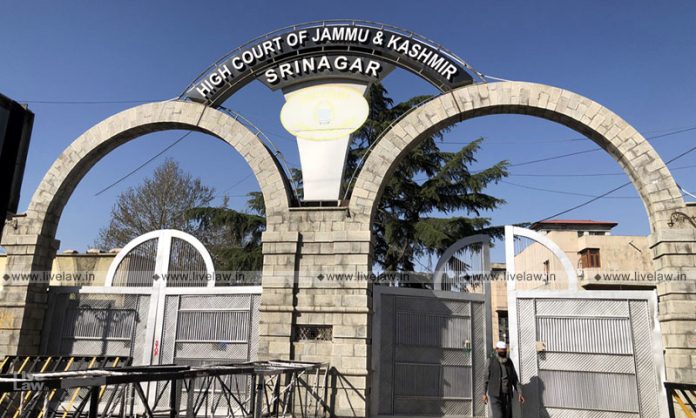Excelsior Correspondent
Srinagar, July 25: Dismissing the plea of a litigant for approaching the court after 25 years to seek his grievance redressed, High Court in a significant judgment directed the writ courts not to permit a litigant to take advantage of his own wrong and clarified that it will have to necessarily consider the delay on part of litigant in approaching the court.
“For filing of a writ petition, there is no doubt that no fixed period of limitation is prescribed. However, when the extraordinary jurisdiction of the writ court is invoked, it has to be seen as to whether within a reasonable time same has been invoked and even submitting of memorials would not revive the dead cause of action or resurrect the cause of action which has had a natural death”, Justice Wasim Sadiq Nargal said in an elaborated judgment.
Justice Nargal said that on the ground of delay and latches alone, the writ petition to be dismissed or the applicant ought to be non-suited, if it is found that the writ petitioner is guilty of delay and latches, the High Court ought to dismiss the petition on that sole ground itself, in as much as the writ courts are not to indulge in permitting such indolent litigant to take advantage of his own wrong.
“It is true that there cannot be any waiver of fundamental right but while exercising discretionary jurisdiction under Article 226, the High Court will have to necessarily take into consideration the delay and latches on the part of the applicant in approaching a writ court”, read the judgment.
The court after examining the record minutely, viewed that there is no illegality and infirmity in the consideration order, issued by the Registrar Cooperative Societies J&K, Jammu, on the representation of the petitioner and other similarly situated colleagues. “challenge thrown to the same is ill founded and accordingly, the same is upheld. The instant petition is, therefore, found devoid of any merit and is, accordingly, dismissed”, the court concluded.
The petitioner-Ghulam Mohi-uddin Sheikh appointed as Supervisor/Sub-Auditor in the year 1987 and after a gap of more than 25 years approached the court seeking higher pay scale. The court has held that his plea is barred by delay and latches, therefore, is estopped under law to claim for higher pay scale.
Court added that he who knows that if he objects to an instrument, he will not get the benefit he wants, cannot be allowed to do so while enjoying the fruits. One cannot take advantage of one part while rejecting the rest. “A person cannot be allowed to have the benefit of an instrument while questioning the same. Such a party either has to affirm or disaffirm the transaction. An element of fair play is inbuilt in this principle. It is also a species of estoppel dealing with the conduct of a party”, read the judgment.
Court said that indisputably the admission on the part of the petitioner-Sheikh for having accepted the employment in lower grade of the cooperative department is one of the star grounds to deny consideration to the representation so filed by him before his higher authorities. That being the position, it would not be correct to say that the petitioner has been discriminated by not appointing him in the higher pay scale of 475-750 commensurable to the post of Supervisor Sub-Auditor.
“It is settled proposition of law that once an engagement order has been passed by the respondents by virtue of which, the petitioner stood appointed against the post of Supervisor Sub Auditor in the pay scale of 410-700, the petitioner who derived benefit of the said appointment is estopped under law to challenge the same”, Court recorded.


